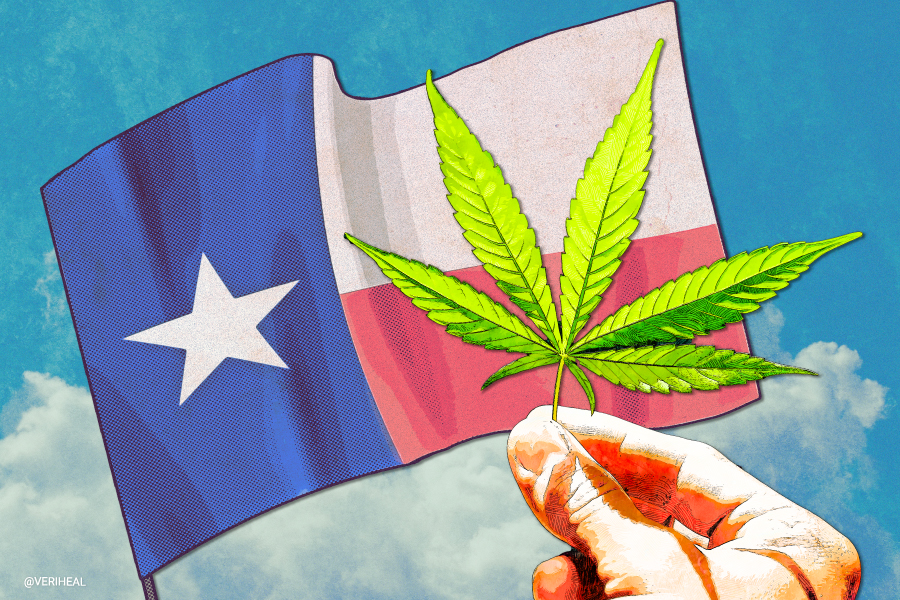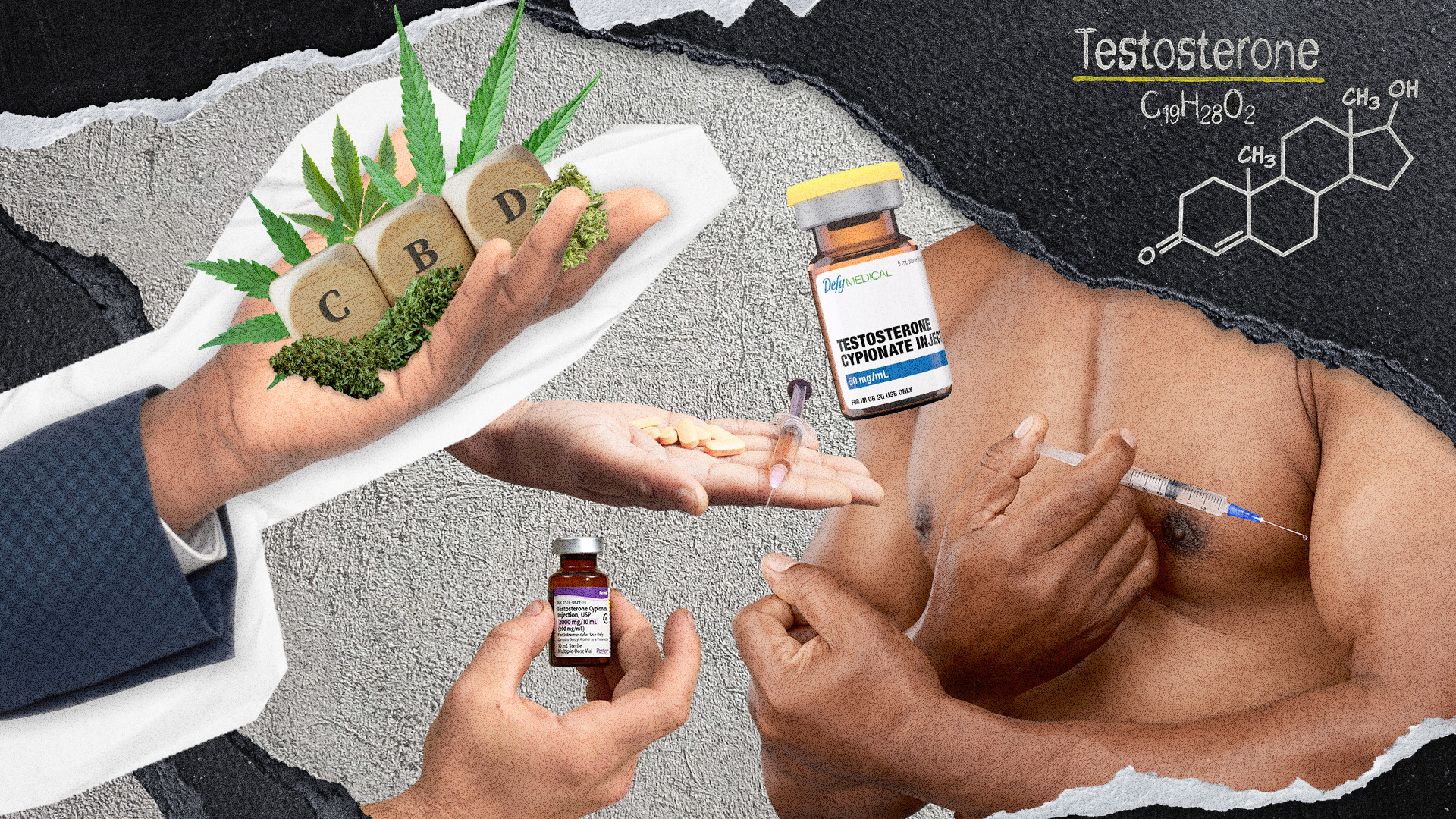According to data released by the Centers for Disease Control and Prevention, there were an estimated 2,620 opioid overdose deaths in Texas between Aug. 1, 2020, and July 31, 2021—a 43% increase from the same period a year before. Sadly, these alarming numbers are just a small portion of a much larger problem that’s been ravaging the United States for decades.
The U.S. opioid epidemic, which claimed a record number of lives in 2021, is the result of America’s faulty regulation of these powerful pain-killing drugs and a widespread lack of access to safe and adequate pain management solutions. As the crisis rages on, modern experts are calling for a serious intervention—an intervention like legal cannabis.
With a worsening opioid situation and an emerging acceptance of medical cannabis, the Lone Star State has a unique opportunity to develop a successful medical marijuana (MMJ) program for its millions of residents battling chronic pain and numerous other conditions. Halting the state’s opioid crisis with the help of medical cannabis can be done, and here’s how.
The Opioid Problem
For too long, America has relied too heavily on opioids for pain relief. A 2019 study found that 76% of patients in the U.S. fill an opioid prescription after having surgery compared to just 11% of Swedish patients. This trend dates back to the 1990s when U.S. physicians began over-prescribing opioids like oxycodone due to reassurance from pharmaceutical companies that they were not addictive—which patients quickly discovered to be untrue.
Since then, the situation has evolved into something much more uncontrollable. As patients became addicted to their pain meds and couldn’t secure refills, they began turning to illicit opioids like heroin and fentanyl. Research published in 2016 revealed that 59% of a sample of patients who misused opioids were first exposed to them through a medical prescription. Today, the majority of fatal drug overdoses are caused by illicit synthetic opioids like fentanyl.
Texans know the dangers of opioids all too well. According to Texas Health and Human Services, “One in five Texans has experienced an opioid overdose or knows someone who has.” An estimated 15,410 residents died from opioid overdoses between 1999 and 2016, and rates have drastically increased since that period. These statistics place four Texas cities in the top 25 for opioid misuse in the nation.
In January 2021, Texas launched a statewide public health initiative called the Texas Targeted Opioid Response (TTOR) to combat opioid addiction. But even with the TTOR’s focus on prevention, treatment, and recovery, illicit operations continue to wreak havoc. In December 2021, five Texas medical professionals were arrested for running a string of “pill mills” that dispensed 4 million illegal opioids.
A Better Alternative for Chronic Pain
While education about opioids is important, it’s clear that what Texans really need is a safer alternative to opioids for pain relief. Rapidly growing research and personal reports suggest medical cannabis could be the answer. With its anti-inflammatory properties and ability to block pain signals in the brain, cannabis is becoming one of the most popular alternative treatments for chronic pain.
Interestingly, although opioids work well for acute pain (e.g., pain after surgery), they have been found to do a poor job of relieving chronic pain despite being a common treatment for it. A systematic review of 162 studies concluded that opioids increased the risk of harm and were no more effective than non-opioid medications at reducing chronic pain. Cannabis, on the other hand, has been associated with long-term improvements in pain and quality of life and decreased opioid use in chronic pain patients.
According to Dr. Haider Warraich, interdisciplinary pain rehabilitation programs that combine therapy with medication are considered the gold standard of chronic pain care. Unfortunately, they’ve been on the decline since the 1990s, but 17 of the existing 74—nearly a quarter—are in Texas. If these programs expanded to include medical cannabis as part of a holistic approach to treatment, the positive impact could be monumental.
Vital Changes to Texas’ Medical Cannabis Program
Texas already has a preliminary MMJ program, but key changes are needed to maximize its effectiveness and meet the needs of the people, including chronic pain patients. The state legalized medical cannabis in 2015 via the Texas Compassionate Use Act, but very few residents qualified to use it for treatment.
Despite the law being expanded twice since then, glaring gaps remain. As stated by the Texas Observer, “Texas has one of the most restrictive medical marijuana laws in the country.” The following are recommendations for revising the Texas medical cannabis program.
Expanded Qualifying Conditions
Of the issues with Texas’ Compassionate Use Program, perhaps the most significant is its short list of qualifying conditions. The law initially only granted MMJ access to epilepsy patients but has since been amended to include a handful of other conditions, including PTSD and multiple sclerosis. Still missing from the list, however, is chronic pain.
Findings from the CDC’s 2019 National Health Interview Survey report that 20.4% of U.S. adults live with chronic pain; applied to the population of Texas, this would come out to be roughly 6 million residents. According to Veriheal data, 72% of Texans who signed up for a medical cannabis consultation on the platform stated a desire to feel pain-free. Chronic pain was the second most common condition among these patients, topped only by insomnia—which is also not included in Texas’ qualifying conditions.
Chronic pain should certainly be a qualifying condition for medical cannabis in Texas given the prevalence of the condition and cannabis’ exceptional ability to alleviate it. Ideally, though, the state should leave it up to doctors to prescribe cannabis for any condition they believe can be treated with it—a change New York recently implemented.
More Telemedicine
The second key to a successful medical cannabis program in Texas is telemedicine. As the second-largest U.S. state in both geographic area and population, access to online medical cannabis consultations is crucial. Texas’ population grew more than any other state from July 2020 to July 2021, and three of the state’s cities rank in the top 10 most populous in America.
At the same time, much of Texas is rural. According to Texas 2036, “Texas’ rural population of 3 million people is larger than the populations of 18 states.” These residents are spread across the agricultural lands that make up over 80% of the massive state. The nonprofit’s website points out that many rural Texans struggle to access essential resources like healthcare. In fact, more than 100,000 Texans live in a county with no primary care doctor.
Texas currently only has a handful of medical dispensaries, almost all of which are located in or near the state’s biggest cities. Why should residents outside those areas have to face the additional barrier of traveling to one of the state’s limited number of cannabis physicians? Virtual MMJ consultations facilitated by user-friendly and efficient online application portals—like this one powered by Veriheal—are necessary for an equitable MMJ program.
Access to Better Products
Finally, the Compassionate Use Program desperately needs revised product allowances. Because Texas’ MMJ program only allows low-THC products, it is not considered comprehensive by the National Conference of State Legislatures. Veterans, advocates, and doctors have voiced concerns about the state’s 1% THC cap, saying it’s “far lower than many who suffer from pain, PTSD, and other ailments actually need.” The majority of state MMJ programs in the U.S. recognize this and permit products with much higher THC content.
Making matters worse, Texas currently forbids smoking or vaping cannabis. Despite the fact that 75% of Veriheal MMJ applicants in Texas listed cannabis flower as their most desired product, patients are limited to forms like edibles and tinctures that can be swallowed. Flower is one of the purest and most cost-effective products, and patients should have the option to use it. In short, Texas should authorize the full scope of cannabis products available (at regular THC doses) and let patients find what works best for them.
A Healthier Texas
Texans deserve sufficient access to medical cannabis. By May 2021—six years after Texas first legalized the plant medicine—less than 6,000 of the state’s residents had enrolled in the Compassionate Use Program. Yet millions more could benefit from it.
On top of helping countless Texan patients get much-needed relief, optimizing the state’s MMJ program could put a serious dent in its rising opioid crisis. A 2018 study showed that legalizing medical cannabis led to a nearly 6% lower rate of opioid prescribing; research conducted in 2021 discovered that “41% of opioid users across the country reported a decreased need to use when having cannabis as an alternative.” If those numbers aren’t compelling enough, this story of a Houston Army veteran who reclaimed his life with cannabis speaks volumes about the personal impact MMJ programs can have.
Texas has already taken the biggest step by legalizing medical cannabis, but small yet powerful changes—more qualifying conditions, telemedicine, and accessible cannabis products—would take the state’s program to the next level. Let’s make them happen.
Author, Share & Comments
















